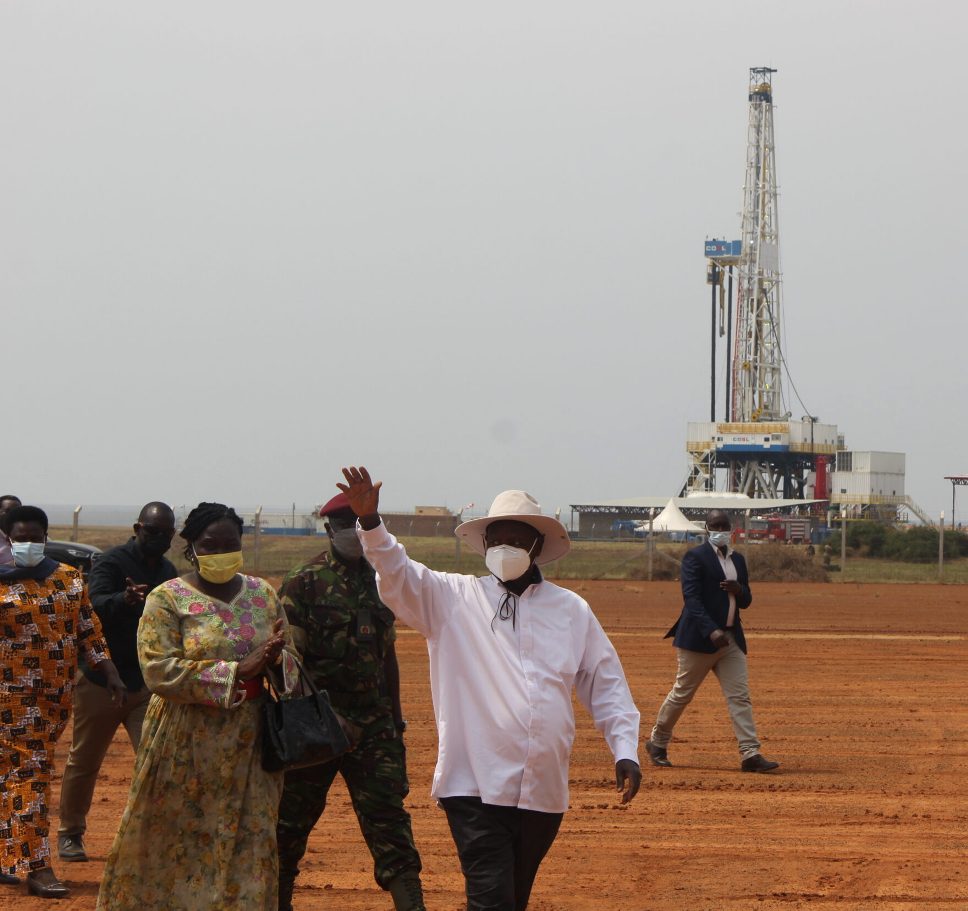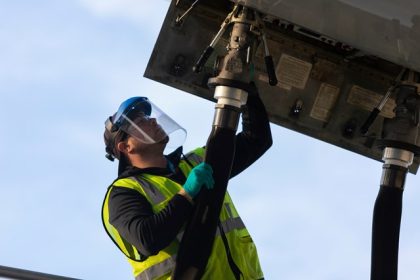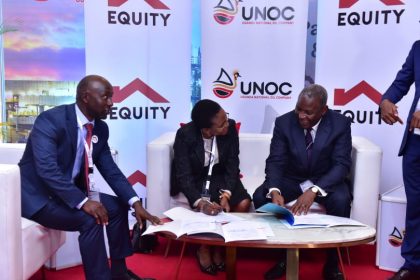US insurance brokerage firm under renewed pressure over Uganda oil
 President Museveni waves to invited guests during the January 24 official launch of drilling operations by CNOCC at the Kingfisher oilfields, western Uganda.
President Museveni waves to invited guests during the January 24 official launch of drilling operations by CNOCC at the Kingfisher oilfields, western Uganda.
Environmental activists, campaigning against the Uganda government’s ambitions for the country to become an oil exporter, have lodged an official complaint to the US government over the role of Marsh, a major insurance brokerage company based in New York City.
The complaint is being filed under the provisions of the OECD Guidelines for Multinational Enterprises. These are non-binding principles and standards for responsible business conduct in a global context consistent with applicable laws and internationally recognised standards. The guidelines also provide recommendations to encourage sustainable development. In the United States, the State Department handles any cases that fall under these guidelines.
Uganda has some 6.5 billion barrels of proven crude oil reserves of which about 1.5 billion is recoverable. Drilling commenced in January, but commercial sales are planned for 2025, involving multi-billion investments by China National Offshore Oil Company (CNOOC Uganda) and French giant, TotalEnergies.
A subsidiary of Marsh McLennan, late last year Marsh won a contract to find insurers for the East African Crude Oil Pipeline Project (EACOP). The proposed 1400 kilometre pipeline estimated to cost about $4 billion, will ferry the crude from the oilfields in western Uganda to the Tanzanian port of Tanga. Several leading insurers have publicly distanced themselves from the project and addition to major international banks.
Inclusive Development International and 10 Ugandan and Tanzanian NGOs – which have chosen to remain anonymous for fear of reprisals – allege that Marsh is contributing to the serious harm caused by the pipeline by providing the insurance services necessary for the project to progress.
Coleen Scott, a legal and policy associate at Inclusive Development International, said: “Marsh is playing a critical role enabling the East African Crude Oil Pipeline to move forward in the face of widespread opposition and overwhelming evidence that the project will be a disaster for Ugandans and for the planet.”
IDI says the human cost and negative repercussions to the bio-diversity in the vicinity of the pipeline project are not being adequately addressed or being ignored in the pursuit short term gains.
A spokesperson for Marsh said: “Marsh McLennan has a long-standing policy of not confirming the identity of clients. We are committed to helping businesses develop low-carbon business models and manage risks associated with the transition from fossil fuels to renewable energy.”
The Uganda government has resisted all criticism both local and international, maintaining that the country’s budding oil and gas sector will be a major driver for future economic transformation. During the January ceremony to officially start drilling operations by CNOOC at the Kingfisher oilfields, Uganda’s energy minister Ruth Nankabirwa said, “We are going to drill, knowing that we have taken care of environmental, health, and safety issues.”

 Boeing’s record SAF purchase supports airlines decarbonisation efforts
Boeing’s record SAF purchase supports airlines decarbonisation efforts
 With eyes on oil and gas, France pledges USD 3 billion investment in Uganda
With eyes on oil and gas, France pledges USD 3 billion investment in Uganda
 TotalEnergies awards Expro Holdings $30m deal to maintain Ugandan rigs
TotalEnergies awards Expro Holdings $30m deal to maintain Ugandan rigs
 Uganda National Oil Company CEO Nabanjja to headline October Johannesburg energy event
Uganda National Oil Company CEO Nabanjja to headline October Johannesburg energy event
 Fitch raises Uganda’s credit rating from negative to stable
Fitch raises Uganda’s credit rating from negative to stable
 UNOC MoU anchors Equity’s Uganda Oil and gas strategy
UNOC MoU anchors Equity’s Uganda Oil and gas strategy
